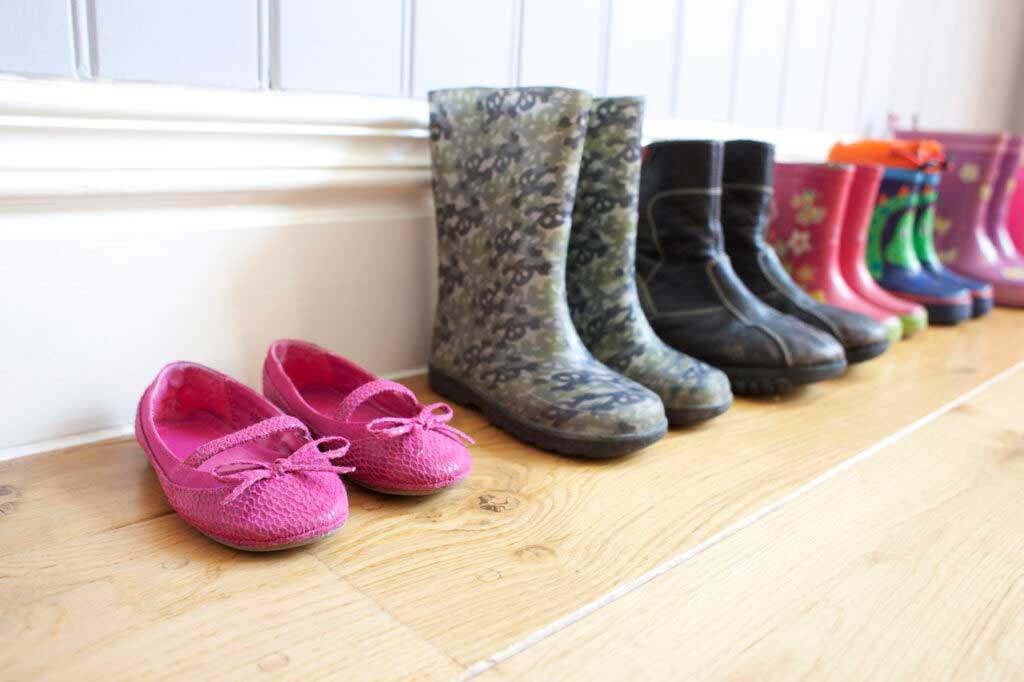Choosing to separate or divorce is often among the toughest choices a parent confronts. If you find yourself in this situation, it’s important to acknowledge that the difficulty of this decision is a testament to the excellent job you’re doing as a parent. Your deep consideration of the impact on your family reflects your commitment and care.
In my 15 years of experience working with families going through separation and divorce, the question I encounter most frequently is “Should we stay together for the kids?” Essentially what parents are really asking is “How can I make the very best decision for my children, whom I love more than anything?” It’s true that divorce can be a challenging experience for children. It’s also important to recognize that it’s not always an entirely preventable source of stress.
Oftentimes divorce is the healthiest choice for a family. Parents choose to separate and divorce for a whole host of perfectly understandable and valid reasons. The good news is that the way parents manage the divorce process has a far greater effect on their children’s well-being than the mere fact of the divorce itself. In other words, it’s the how, not the what, when it comes to divorce’s impact on children.
What does the research say on divorce?
If you have wondered whether divorce is bad for children — or even been told that it is — you are not alone. The question of whether divorce is bad for kids has been a topic of societal debate for nearly four decades. The answers from the scientific community have evolved dramatically since it was first examined in the mid-1980s. Initial research suggested that children who experienced divorce faced a lifetime of challenges, particularly in their own romantic relationships. This research, however, had biases. One commonly cited study used a sample size of just 60 white, highly educated families in Marin County, California, who were participating in exchange for counseling. This led to a limited view of the divorce experience. Additionally, the absence of a control group and the study’s clinical, qualitative nature made it difficult to generalize the findings.
Decades later, a more nuanced understanding has emerged. Numerous studies, including meta-analyses, longitudinal studies, and experimental trials, acknowledge that divorce can increase the risk of problems in many areas of a child’s life, such as mental health, physical health, academic success, and social relationships. But there is much more to the story.
Although separation or divorce does increase the risk of problems on average, most children are incredibly resilient. Some children do even better after a separation or divorce. For example, it can be better for the children if it means there’s less arguing or tension in the home. Overall, 20% to 25% of children in divorced families face long-term difficulties, compared with 10% in non-divorced families. The problems related to divorce often show up in different ways, in part depending on a child’s age and stage of development. It’s not that kids of certain ages aren’t impacted, but the way they’re affected depends on what’s important in their growth at that time. Teens might struggle with school or friends, whereas younger kids might show their stress through their behavior.
Recent research has focused on figuring out why children have such variable outcomes and whether we can predict which children will fare well and which children will struggle after their parents’ divorce. As a whole, the scientific literature highlights four big factors that predict how children adjust after divorce:
- First, conflict between parents that is frequent, intense, and related to topics that involve the children themselves is rated among the most stressful parts of divorce for children. This type of conflict is referred to as “destructive conflict” among researchers. It’s linked to negative outcomes like mental health issues, trouble making friends, and problems at school. When parents disagree but work through their issues with problem-solving and compromise (i.e. “constructive conflict”), it’s not usually harmful and can even be good for their children.
- Second, having a strong bond with at least one parent is one of the best ways to protect kids. It has been shown to shield against the harmful effects of divorce-related stress.
- Third, maintain structure and stability for your children as much as possible. Keeping consistent routines and following through on rules and consequences provides a sense of security amid the changes.
- Lastly, when children learn effective coping methods, it helps them with the tough times during a divorce and also makes them better at dealing with other problems they will encounter in the future.
It is important to note that although some of these strategies apply no matter the age of your children, others are things you can adopt over time as your children grow older. Let’s examine each of these concepts and tips for practicing them as a parent.
Shield from conflict and promote positive co-parenting
Arguably, the first rule of parenting post-divorce is keeping destructive conflict away from the kids. Post-divorce conflict can heavily impact children. One study found that children exposed to destructive conflict between parents are more than twice as likely to develop mental disorders six years after the divorce. On the other hand, research shows that calm and collaborative conversations, even about disagreements, can be good for kids.
Tips for you:
- Plan parental interactions carefully, avoiding contentious discussions in front of the kids.
- Ensure that all communication with your ex-partner is direct, using calls, texts, emails, or specialized co-parenting apps.
- Avoid subtle conflict by refraining from comments or questions that criticize the other parent’s actions.
- Never use children as messengers or spies.
- Share age-appropriate details about the divorce, steering clear of the blame game. One child said, “Tell us about the changes in our family and what will happen to us, but please spare us the gory details.”
- Reassure your kids that the divorce is not their fault.
- Keep your emotional struggles separate from your children, seeking support from friends or professionals instead.
- Advise your inner circle to avoid speaking negatively about your ex in the presence of your children, as kids are often more perceptive than you might expect.
Foster a strong parent-child connection
Research shows that a stable, loving relationship with one or both parents can be a strong buffer against stress. These warm and supportive relationships have been consistently linked to better post-divorce adjustment in children.
Tips for you:
- Listen well by offering undivided attention and asking open-ended questions.
- Be emotionally supportive, allowing children to express feelings and validating their emotions.
- Express love and affection through physical touch and reassuring words.
- Be approachable, ensuring that your children feel comfortable discussing concerns.
- Prioritize quality time, maintain family rituals, and plan special one-on-one time with each child.
- Catch them doing good: praise behaviors you want to see, boosting their self-esteem.
- Nurture their strong relationships with siblings, extended family, and teachers.
Maintain structure and stability
Maintaining a consistent routine can provide a sense of normality and predictability for children navigating family dynamics after a divorce. While it may be tempting to relax the rules, upholding a consistent schedule, house rules, and key routines can reduce stress for everyone.
Tips for you:
- Set clear and realistic rules. The change in family dynamics doesn’t diminish the need for structure; communicate these rules to your children and consistently enforce consequences. Try to have the same rules at both parents’ houses so your child doesn’t have to switch back and forth between different rules. If this isn’t possible, make the “house rules” as clear as possible with charts or reminders.
- Opt for positive reinforcement over punishment to motivate behavior, like rewarding waking up for school on time with extra TV time instead of punishing tardiness with an early bedtime.
- Keep children informed about changes in living arrangements, visitation schedules, or daily routines; consider using tools like color-coded calendars.
- Keep them in activities they enjoyed before the divorce, like sports or spending time with friends. Although divorce brings changes, it doesn’t have to disrupt your child’s sense of stability. A predictable environment makes children feel safe and sets the stage for a smoother transition for everyone involved.
Promote healthy coping
Healthy coping can make a big difference in how children handle separation and divorce. Programs that teach youth coping skills for divorce-related stress have shown positive effects on their mental health in randomized controlled trials. For example, multiple evaluations of one program showed that the effects last up to two years post-divorce.
Tips for you:
- Model healthy emotion regulation: by openly managing your own emotions, you teach your children to mimic these strategies. Show them how you can deal with stress and overwhelming emotions constructively.
- Label and validate their feelings. If you notice your child looks anxious, you could say, “It makes sense to feel nervous when so many things are changing. I feel that way sometimes too.” This helps them feel understood and also teaches them how to accept their feelings.
- Coach them to use effective coping strategies. This could involve breaking down problems into manageable steps or looking for the silver lining in challenging situations.
- Teach them the concept of “not my job”: explain that certain problems, like parents arguing, are for adults to handle. Help them categorize divorce-related stressors into “my job” and “not my job”; use real-life examples and a decision tree as a guide. Be sure to praise them when they use this skill.
- Remember that your positive parenting makes a big difference! Your unwavering support and consistent discipline create a safe and stable environment. This helps your child feel capable of handling stress without getting too overwhelmed.
Bottom line
Two clear messages emerge from the research. First, children’s experiences, relationships, and resources before, during, and after the divorce process play a pivotal role in their adjustment. Second, evidence-based protective factors show that parents and children can be powerful agents of change. The power of parenting in stressful times is truly unparalleled. You might not be able to stop stress from reaching your child, but you can be like a sturdy anchor in rough waters, providing them with a sense of emotional safety and security.
Keep in mind that taking care of your well-being is key to being that sturdy anchor your children need. In the wake of a divorce, balancing your own needs with those of your family might seem like a tall order. By focusing on self-care, you’re not just doing yourself a favor — you’re also setting a good example for your kids and creating a healthier, happier environment for everyone. Don’t hesitate to consult professionals who specialize in helping kids adjust to major life changes if the emotional burden becomes overwhelming. Divorce is stressful, but by using these research-based strategies, you can guide yourself and your children through this big change and end up stronger on the other side.
Resources
Empowering parents: The New Beginnings Program
The New Beginnings Program is now available to parents everywhere through a self-directed online program. With over 20 years of research and four randomized controlled trials, this program has shown significant effects in reducing children’s mental health problems, improving educational achievement and social functioning, and preventing substance use. Its benefits are long-lasting, with ongoing studies examining impacts on the next generation.
Teaching children coping skills: Project Brain Team
Researchers at Arizona State University are testing new online games designed to help children cope with the emotional impact of parental separation and divorce. If you have a child age 9 to 12, you might be eligible to join. Participation includes you and your child doing surveys, phone calls, and daily reports for six weeks. Eligible families can get up to $300 in electronic gift cards, and children will get prizes throughout the project. Learn more here.
Research translated: YFaCS Lab’s Instagram
The Youth and Families in Court Systems (YFaCS) Lab at Arizona State University has a new Instagram page where we will be translating research into practical tools and insights for parents facing separation and divorce. Content will start in early 2024 — don’t miss out! Follow here.
Community Guidelines

















Log in